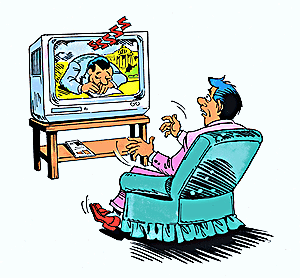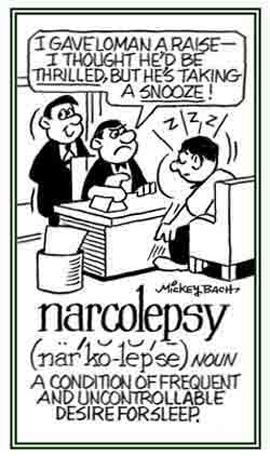narco-, narc-, -narcotic, narcotico-, -narcosis, -narcoticism
(Greek: numbness, dullness; sleep, stupor, torpor; benumb, deaden)
2. The induction of unconsciousness by the application of electricity to the brain between electrodes placed on the temples.
3. Anesthesia that is induced or produced by passing precisely controlled electric current through the brain without causing convulsions: One example of electronarcosis is the treatment of psychiatric disorders.
2. A sleep disorder that usually appears in young adulthood, consisting of recurring episodes of sleep during the day, and often disrupted nocturnal sleep: Quite often, narcolepsy is accompanied by sleep paralysis and hallucinations.

Sometimes narcolepsy is described as "sleep attack"
There are times when narcolepsy, or severe sleepiness, occurs so suddenly and with such overwhelming power that it is referred to as a "sleep attack".
Some victims have several "attacks" each day. Excessive daytime sleepiness often occurs at inopportune times: in the classroom, at business meetings, during a meal, in the middle of a conversation, or even when active before an audience of people; such as, an announcer on TV as shown in the above image.
Narcolepsy is a chronic neurological disorder caused by the brain's inability to regulate sleep-wake cycles normally.
At various times throughout the day, people with narcolepsy experience fleeting urges to sleep. If the urge becomes overwhelming, individuals will fall asleep for periods lasting from a few seconds to several minutes.


